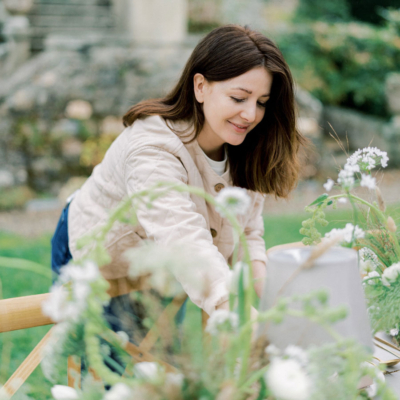Irish author and medic Dr Harry Barry shares his tips on how to let go of grudges and hurt …
Hurt is an unhealthy negative emotion or feeling, engendered by the belief that others are not treating you fairly, or that life is not treating you fairly. Over decades of assisting those in emotional distress, I have found hurt to be one of the most common and most toxic negative emotions of them all. I often describe it as if those affected are being consumed from the inside out by a caustic acid, it burns all before it, leaving behind what feels like an emotional wilderness. It can harden your heart, making you feel bitter and deeply unhappy.
It can create a toxic environment for those you live or work with as it makes you suspicious, prickly and hypersensitive to the smallest of slights. It can lead to you pushing people away emotionally, creating difficulties for your personal and other relationships. Hurt can unfortunately quickly grow legs, with negative consequences accumulating as it spreads its tentacles. Yet it can be addressed and dealt with remarkably swiftly, as you will see.
How to Manage the Emotion of Hurt
At the heart of this emotion lies the belief that you should be treated fairly by others and by life itself. While anyone struggling with hurt genuinely believes this belief and demands to be both sensible and rational, the reality is that it is both irrational and impossible to deliver in real life. It would be a wonderful world if all citizens of our planet were treated with kindness, respect and dignity, but sadly the world is not like that.
Of course, it is rational and acceptable to prefer or wish to be treated fairly by others or life, but in order to be emotionally healthy we must accept that this will often turn out not to be the case. And, crucially, that this is not anyone’s fault, it’s just how life goes for everyone.
You may question how this knowledge can assist you in dealing with your personal emotion of hurt. To do so, it will help to grasp some key insights.
1 Hurt is always about carrying a “personal” grudge (either against an individual or a member of a group such as a managerial team at work) or indeed against life itself.
2 The person who suffers most and is affected most by your carrying a grudge is always you. The person who has caused your hurt is usually blissfully unaware, so it is in your interests to drop the grudge in order to heal yourself.
3 Hurt tends to grow legs as time progresses, so the grudge becomes more ingrained and difficult to shift. It also tends to spread its tentacles to other people and situations.
4 Your behaviour, such as lashing out emotionally or being hypersensitive, is a response to carrying this grudge and is going to cause you further difficulties.
5 If you accept the concept of Unconditional Self-Acceptance, then the only part of the human condition or person that you can rate or measure or challenge is your behaviour. You accept that it is unhelpful to rate yourself as a person and by corollary be rated by, or rate, others personally. You can, however, rate or challenge your own or another’s behaviour. As humans, we all mess up regularly and this puts us all on a level playing field. Just as you are entitled to be critical of your own actions if appropriate, so too are you entitled to be critical of or challenge the actions of others. This concept is key to managing hurt. I therefore recommend the following steps:
1 To understand the concept of carrying a grudge, I ask you to try a physical exercise in which you fill a rucksack with rocks, or heavy books, and carry it while out walking for at least an hour. Note how heavy it becomes and the relief felt when you take it off. This is what it is like to carry grudges for life, and to finally let them go.
2 Learn to apply the lessons of Unconditional Self- Acceptance, where you separate who you are as a person from your behaviour and only rate the latter. You then apply the concept in reverse, to the person whom you believe has treated you unfairly. Forgive the person as it assists you, not them, but feel free to challenge and rate their behaviour or actions.
3 Challenge and change unhealthy behaviour patterns that you may have fallen into over the years. Instead of falling into your natural pattern of seeking evidence that every- one is out to get you, look for the opposite. Pay attention to the moments when people are helpful, or kind, or generous. You will find that focusing on the positives will help you let go of your hypersensitivity, sullen silences and verbal outbursts.
4 Learn to challenge the behaviour of others in a constructive manner. If initially you feel like lashing out, perform the Turtle Exercise, where you take five minutes to “go into your shell” and only then proceed. This may involve a trip to the restroom or to make a cup of coffee. Then, when you have gained some space and perspective, question the behaviour. Address the behaviour rather than the individual. For example, ‘It hurts my feelings when you ignore me in front of others,’ rather than ‘You always ignore me because you’re selfish.’ Make the person understand that their actions have caused you to feel upset or hurt and explain why, without attacking them as a person. Normally this will be all you will have to do. Occasionally you may have to take the “nuclear option” and face the person with the consequences of their behaviour. This might involve choosing to remove someone from your life, or raising matters with bosses at work, for example. Remember that you have the choice as to whether to use this option or not, but that you are now the person in charge of this decision.

From: Emotional Healing, How to put yourself back together again, Dr Harry Barry, published by Orion Spring, is out now.
LOVETHEGLOSS.IE?
Sign up to our MAILING LIST now for a roundup of the latest fashion, beauty, interiors and entertaining news from THE GLOSS MAGAZINE’s daily dispatches.










